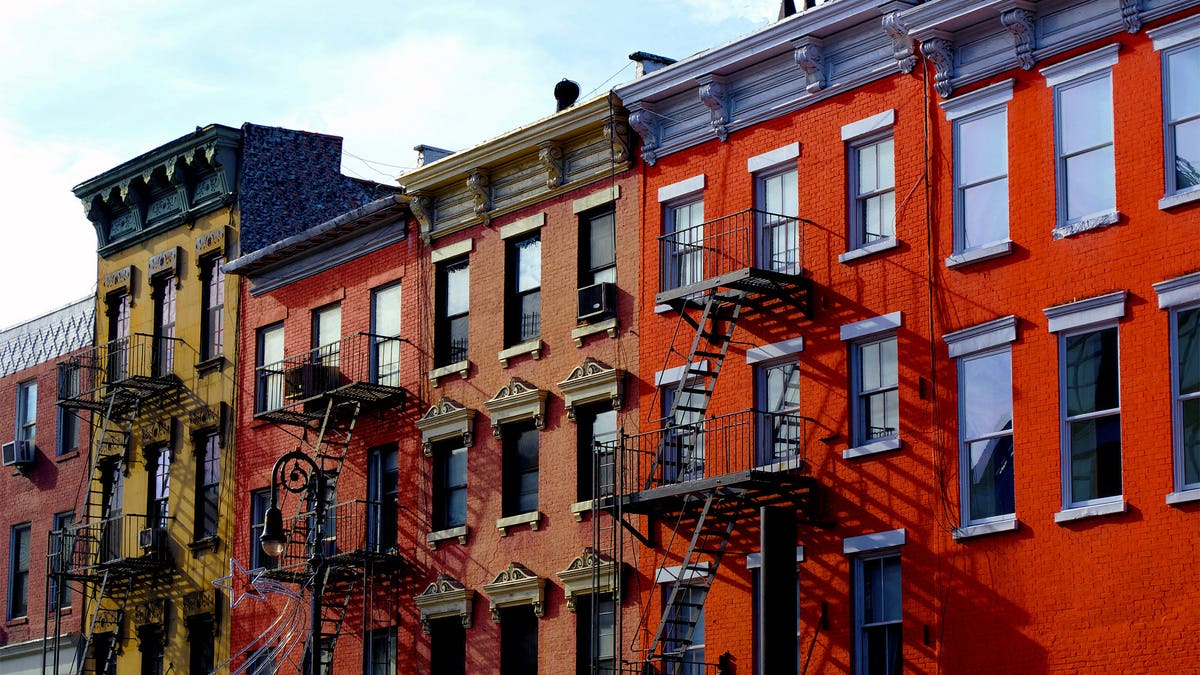
apartments in new york city (Luke Abrahams)
Dorm life is fun, but renting your first apartment? That's the epitome of freedom. Yet independence sure isn't free -- it's not even cheap. The median rent for a one-bedroom apartment is $1,150 per month. To make sure you can pay your rent, you'll need to manage your money.
Of course, if devising a budget you actually have to live by is uncharted territory, you might need some help. This budget guide for your first apartment will point you down the right path so you don't end up in the red -- and on the street.
Figure out how much rent you can afford
What kind of apartment you should rent will hinge, of course, on how much cash you're bringing in. According to Manisha Thakor, director of Wealth Strategies for Women at the BAM Alliance, the general rule is that your rent should be no more than a quarter your take-home pay. For example, if you bring home $4,000 per month, your monthly rent should be no more than $1,000.
Yes, in some hot and pricey U.S. cities you may very well wind up needing to pay more. But just know that ideally, you should actually be paying less than that to build up a fund to cover emergencies -- like a last-minute flight home to visit a sick relative or, God forbid, a layoff.
Subtract any loans
Do you have a monthly car payment or student loans? Chances are good that you have some sort of monthly payments that need to be factored in when budgeting for an apartment.
For example, if you make $4,000 per month but your monthly college loans and car payments total $400 per month, subtract that from your monthly income for $3,600. That means your apartment should cost no more than $900.
Add in utilities
Utilities for a new apartment don't come cheap, so make sure they're on your radar.
"It's not uncommon for renters to find themselves paying $150 for a bundled internet/cable package [and] another $100-plus a month for gas, electric, water," says Thakor. You should consider these monthly bills part of your rent, and adjust your sights accordingly.
A lot of newer apartments also include cable, gas, or water in the monthly rent -- which can be a major way to save -- so keep your eyes peeled for these deals.
Factor in food
Unless you're willing to live on packaged ramen or Kraft Easy Mac, you should prepare to spend at least a couple of hundred dollars on groceries a month. According to the Official USDA Food Plan, on average, individuals between ages 19 and 50 spend at least $200 to $250 a month on food, and that's just the "low-cost plan."
Eating out, of course, will ramp up your food bills fast. Buy you knew that already, right?
Keep track of your spending
In the end, no one knows your overall expenses better than you. The best thing you can do for your budget is to sit down once a month and evaluate where all your money is going. Money managing sites like Mint.com and LearnVest.com make it easy and even kind of fun by automatically keeping track of and organizing each transaction into different categories.
If you would prefer not to link your personal bank account to a site or app, you can take advantage of budgeting tools built into your bank's website -- or simply checking your statement a regular basis.
As Thakor says, "the whole point of budgeting is to make sure your money isn't leaking in ways you are unaware of."
Consider a roommate
If you feel that having an apartment on your own is a bit beyond your pay grade, you'll save a bundle if you rent with a roommate. Get this: The typical price for a two-bedroom unit, $1,300, is just a smidge more than that of a one-bedroom. That means you'll almost halve your monthly rent bill with a roomie.
But choose wisely: If your roommates flake on their portion of the rent, you could be held responsible unless you take some precautions with your lease, like having a separate lease for each roommate rather than lumping you all on one document.
Start saving for a home
If you dream of owning a home one day, you should definitely start saving now! We know it's hard, but if you save in small increments (and set your bank account to automatically deposit them into savings), you will barely feel the pinch.
In Chicago, for example, the median home price is $264,900 and the average down payment is $35,496. This means you'd just need to save $9.72 a day for 10 years. It's practically painless! Or if you've got some money saved already, check out realtor.com's Rent vs Buy calculator to see whether it makes more sense in your area to buy now.
-- -- -- -- --
Watch: Is It Smarter to Rent or Buy?